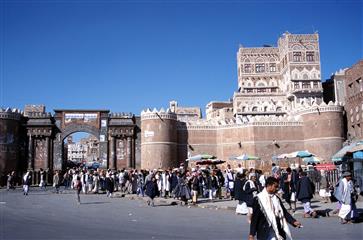

Worldwide Services
Yemen


History

The history of Worldwide Services dates back to 1973, when a group of young medical professionals started to provide medical services in the Republican Hospital in Saadah.
Over more than 35 years volunteers worked for longer or shorter periods of time in the hospital in Saadah, while support was given to some clinics in the area.
Primary health care services as well as specialists’ services were provided by the WS team in collaboration with Yemeni colleagues.
Developing of local capacity through training and mentoring of local staff is a main objective of Worldwide Services. Many primary health care workers and local midwives received their practical training in the Republican Hospital under the auspices of Worldwide Services-staff.
The involvement of Worldwide Services in the work in Saadah came to an end in 2009, and in 2010 the Ministry of Public Health and Population of the Republic of Yemen asked Worldwide Services to start a new project on Socotra. Capacity Building is the main objective of this new endeavor.
News

A group of young new midwives, all from Socotra, have just finished their three years training in Mukalla. From the Director of Health of Socotra they all received a complete set of instruments for the purpose of home deliveries.



Yemen is one of the oldest centers of civilization in the Near East. Its capital and largest city is Sana'a. Yemen's territory includes over 200 islands, the largest of which is Socotra, about 354 km (220 mi) to the south of mainland Yemen. It is the only state in the Arabian Peninsula to have a purely republican form of government. Yemen was the first country in the Arabian peninsula to grant women the right to vote. Yemeni unification took place on 22 May 1990, when North Yemen was united with South Yemen, forming the Republic of Yemen.
The majority of Yemen's population is divided into tribal groups, especially in the northern areas of the country where 85% of local residents belong to various tribes. There are also small groups of peoples of Turkish/Ottoman origin in urban areas. Roughly 66% of the population are Sunni Muslims following the Shafi'i school while 34% adhere to the Zaydi Shia branch of Islam with small minorities of Ismali Muslims.
A Shia rebel movement, the Houthis, emerged in the early 2000s, claiming it would fight against what it saw as the marginalization of the Shi’ites of the Zaydi sect, which prevails in the Yemeni highlands.